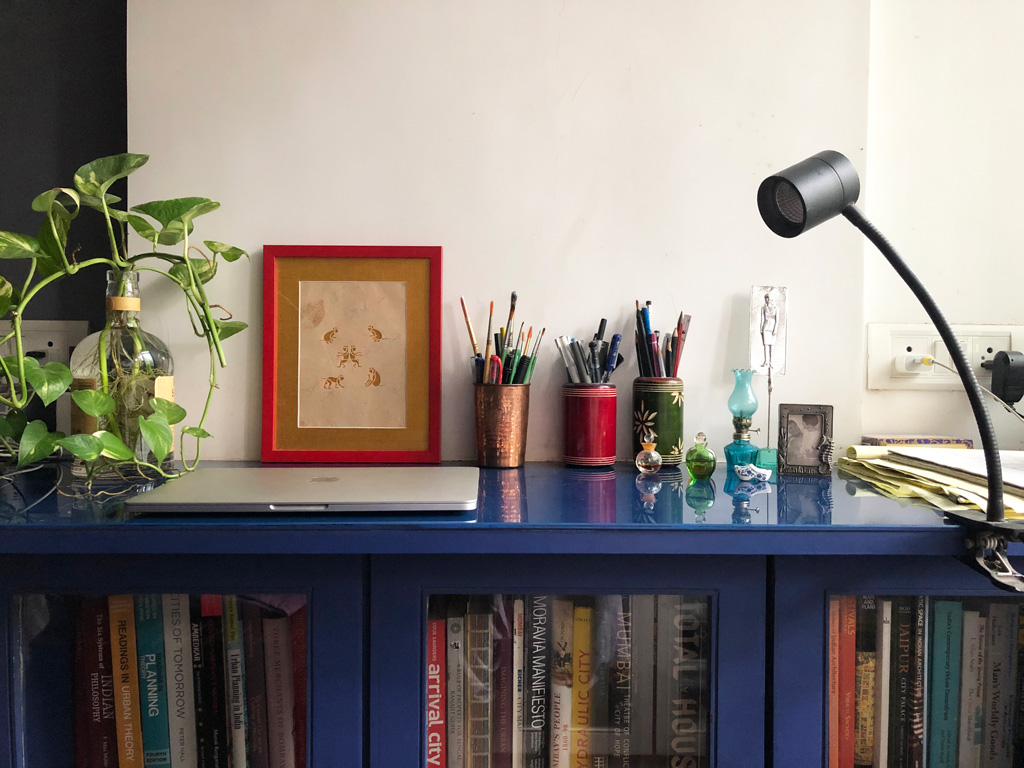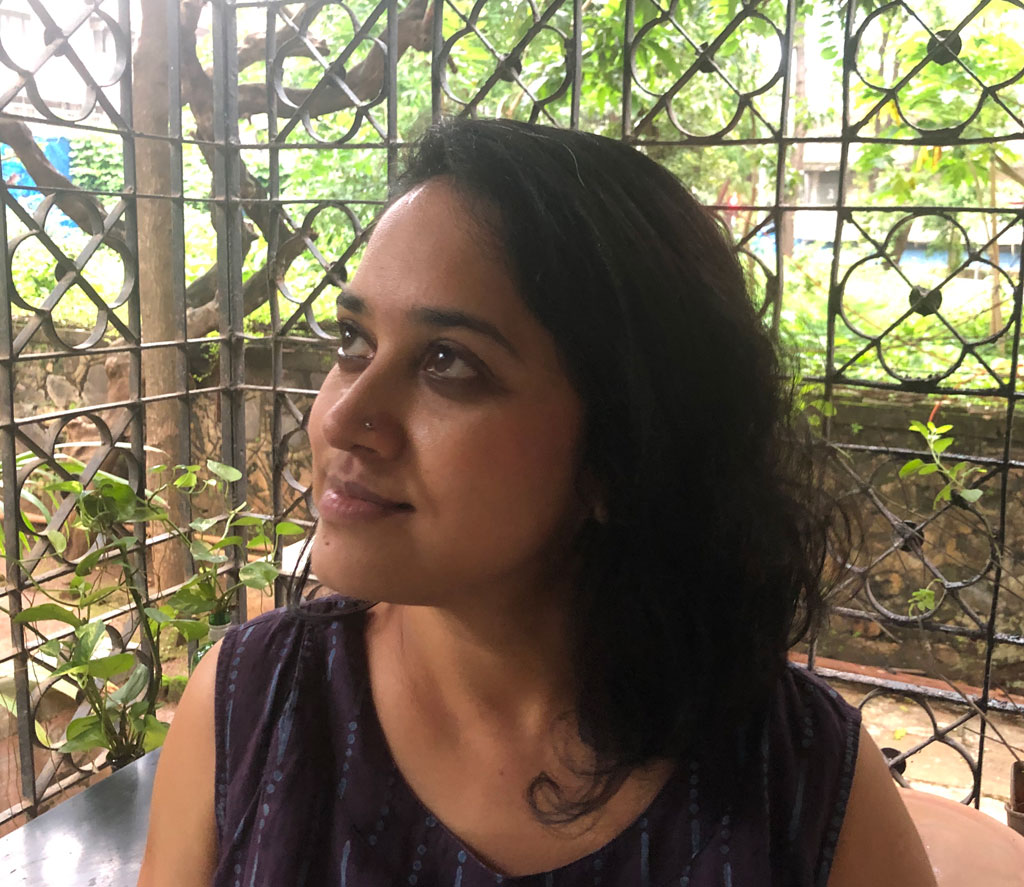The Desk
The desk has taken a new meaning in the current pandemic. In many ways the world has at the same time shrunk and opened wide. With long hours of online teaching and endless webinars the world appears to be in conversation on the screen and at the desk. Ideas of public, private, inside, outside have collapsed. The desk has become a haven where objects have accrued to keep you company as you read, write, draw, converse. A delicate paper cut with gold monkeys given by a dear friend who you can now meet only on the screen; a money plant with tangled roots stolen during a much needed, sanity inducing, evening walk; thriving in a whiskey bottle that has sustained spirits through the lockdown; an old faded photo of our young selves, in a photo frame adorned with a sea horse; wads of yellow paper; piles of sketch books; and carefully collected drawing pens and pencils sit alongside coloured glass miniature perfumed bottles because Baudelaire, the painter of modern life, once reprimanded a vendor selling glassware in his neighbourhood, which was all devoid of colour, with the words, “Make life beautiful”.
Rupali Gupte and Prasad Shetty
Rupali Gupte and Prasad Shetty are architects and urbanists based in Bombay. They are co-founders of SEA (School of Environment and Architecture), CRIT (Collective Research Initiatives Trust) and partners at BARD Studio. They believe that the urban realm is incoherent, unbound, unstable and gets worked out through multiple and messy logics. Their conceptual journey has moved from an urge of mapping cities, articulating problems and developing corrective interventions, to, looking closely at urban conditions, formulating newer ways to speak about them, and developing engagements to live and find delight. Their work often crosses disciplinary boundaries and takes different forms – writings, drawings, mixed-media works, storytelling, teaching, conversations, walks and spatial interventions. They have a wide range of publications and have worked, taught and lectured across the world.
Some of their joint works include Multifarious Nows (2007) shown at Manifesta 7 at Bolzano, a multi-media map of the textile mill lands in Mumbai, Studies of Housing Types in Mumbai (2007) produced for the Urban Age initiative of London School of Economics, a compilation of twenty-one housing typologies, Being Nicely Messy (2012) a proposition for the future of Urban Mobility shown in Istanbul for the Audi Urban Future Initiatives, Gurgaon Glossaries (2013) a methodology to read cities, shown at Sarai 09 Delhi, Mumbai Art Room and the Sao Paolo Architecture Biennale and Transactional Objects (2015) an installation that is both a way of reading cities and a projection, shown at the 56th Venice Art Biennale, Spatial design for the X Shanghai Biennale (2016), Conversations between Systems and Madness at the Seoul Biennale of Art and Architecture (2017), a curatorial project titled ‘When is Space? Conversations in Contemporary Architecture (2018), Belly of the Strange, an architectural installation at MACBA Barcelona (2018).



